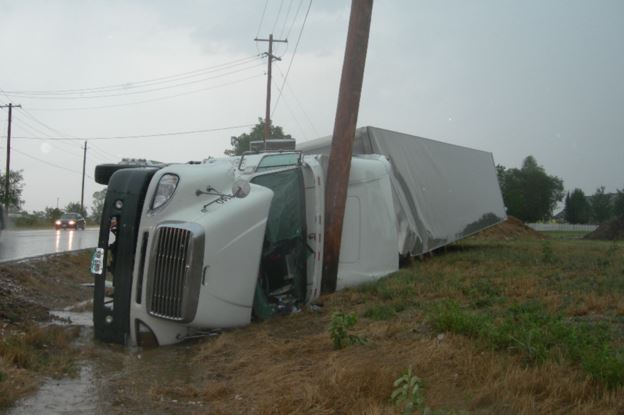The impact of a truck accident is significant and leads to severe injuries to the parties involved. This includes property damages and emotional distress as well.
Even though the truck driver may be the primary at-fault party, it would be helpful to know all the parties who can be held liable for the accident.
This is where the concept of vicarious liability comes into the picture. It allows truck accident victims to sue the trucking company for negligence for the actions of the truck driver.
You should consult experienced lawyers for truck accidents for guidance on the impact vicarious liability can have on your case.
Understanding Vicarious Liability
The legal principle of vicarious liability is based on the Latin term “respondeat superior,” which means “Let the master answer.”
The master here refers to the employer, while the servant refers to the employee.
According to the legal principle backing vicarious liability, an employer is accountable for the negligent actions of their employee that are performed within the scope of employment.
When an employer allows an employee to act on their behalf, the actions of the employee will be treated as if they were performed by the employer themself.
Establishing Vicarious Liability in Truck Accident Cases
Vicarious liability is often used to determine who would be financially responsible for the damages and losses the victims sustain in a truck accident.
When a truck driver of a company causes an accident while working within the scope of his employment, such as delivering goods or driving the company truck, both the driver and his employer will be held liable for any accident that occurs.
However, vicarious liability does not apply if the truck driver was carrying out a personal task, like buying groceries. In such instances, the truck driver, and only the truck driver, will be liable for the accident.
The truck driver is classified as an independent contractor, while their employer may be held liable for the negligent act of the driver. To establish vicarious liability against a company or an employer in a truck accident case, there are specific conditions that must be fulfilled:
- The driver was employed by the company.
- The driver was carrying out a job-related duty when the accident took place.
- The accident was caused by the negligence of the driver.
The Role of Vicarious Liability in Compensation
Unlike individual drivers, most trucking companies today have greater financial resources as well as huge insurance coverage. This is why it’s very difficult for injured victims to get full compensation for their medical bills, lost wages, and damages that they’ve suffered.
With the advent of vicarious liability, several companies now incentivize their drivers to enforce safer practices, including proper training, vehicle maintenance, and compliance with trucking regulations.
Also, it also ensures that the victims of their negligence will not be left uncompensated even if the truck drivers are uninsured.
Conclusion

The legal theory of vicarious liability in truck accident cases that are caused by drivers is very crucial in helping injured victims get fair compensation.
Vicarious liability is also used as a measure by employers to hold their drivers accountable and prevent them from carrying out wrongdoings.
As a victim of the resulting casualty, it is important that you hire an experienced attorney to help you deal with all the complexities and the legality of your case. These legal professionals are vital to winning compensation that meets all the losses and damages that the accident caused.
In the event that out-of-court negotiations fail, the truck accident will represent you in court. They will make strong arguments to convince the jury and counter the defense counsel’s statements to ensure you get the compensation you deserve.




